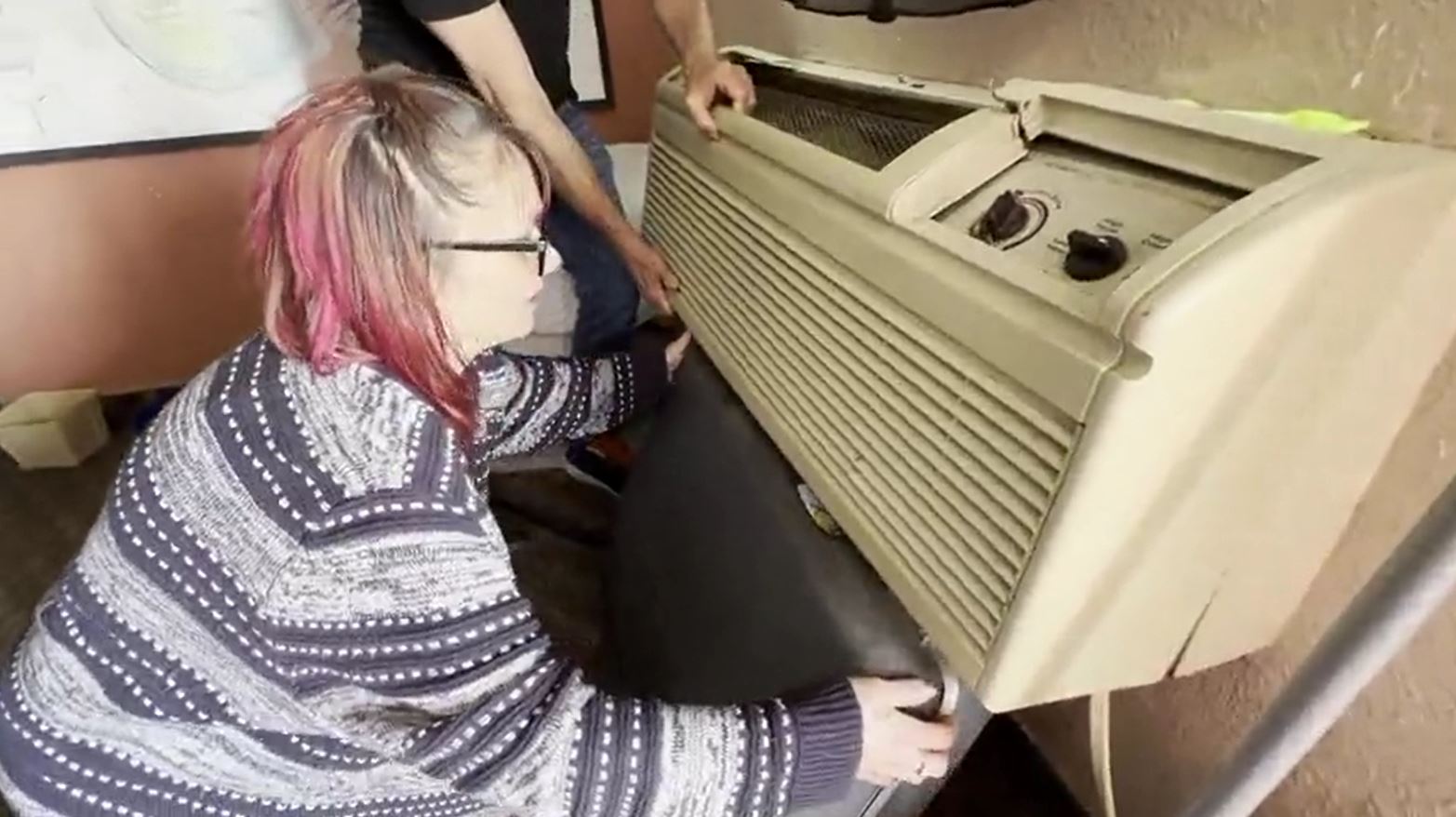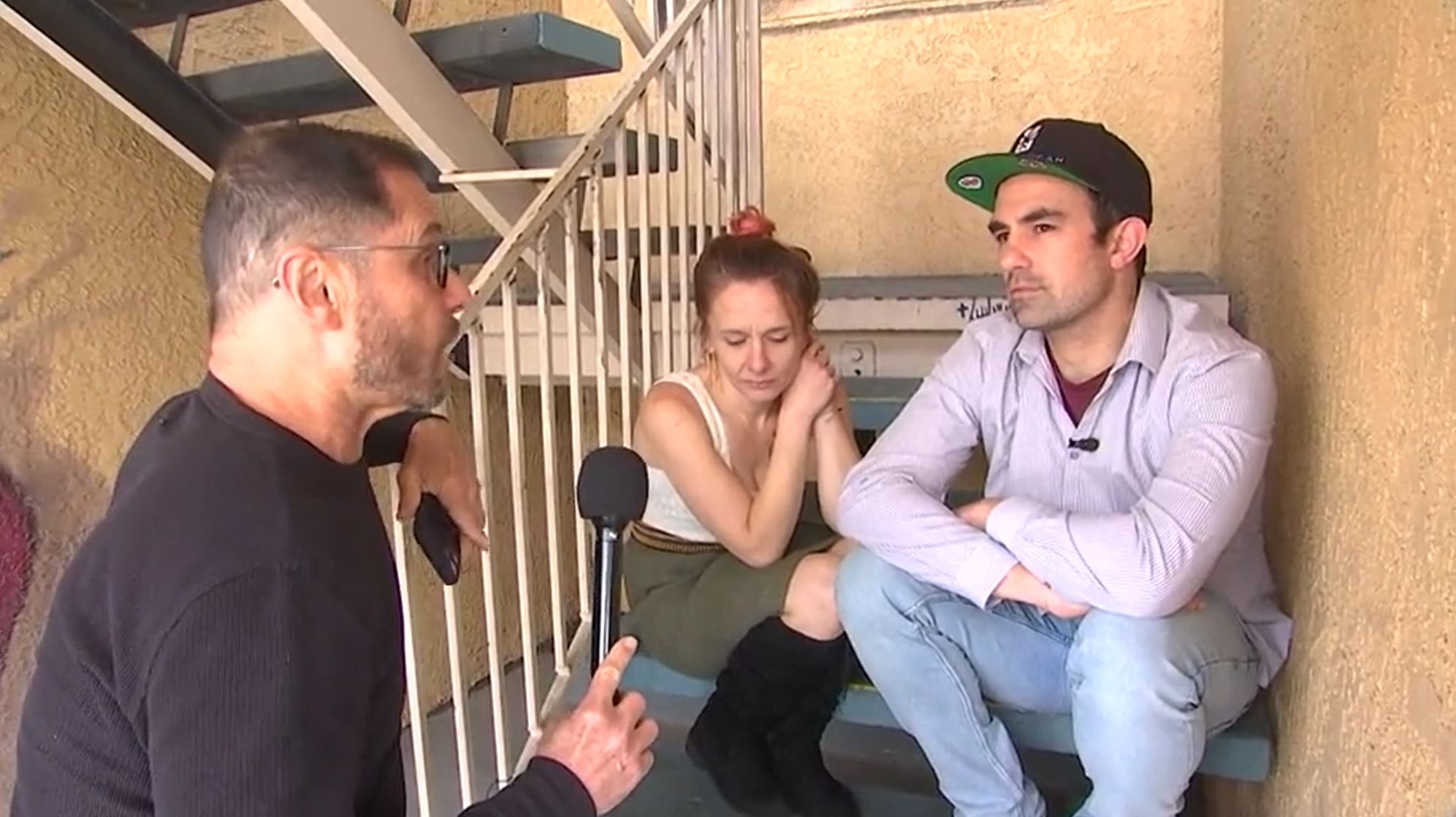Los Angeles Mayor Karen Bass was elected on promises to make a big dent quickly in the city's homelessness crisis, but almost a year later in office, her costly plan has put only 255 of the city's 46,000 homeless into permanent housing.
"No, I am not satisfied with those numbers," Bass told the I-Team.
Shortly after taking office in December 2022, the mayor announced her "Inside Safe" program, which placed homeless people temporarily into motels with the goal of getting them permanent housing and services to build lives off the streets, with resources for substance abuse and mental health counseling.
Since January, the I-Team has been following numerous homeless people who agreed to leave the streets as part of Inside Safe. Faith Stephens, who lived in a tent on a Venice sidewalk, is among one of those people.
Get top local stories in Southern California delivered to you every morning. Sign up for NBC LA's News Headlines newsletter.
Last spring, Stephens was moved to the Sahara Inn motel in South LA, and promised by a caseworker they'd find her an apartment and get mental health services. She says that hasn't happened.
"My whole life has been put on hold from this situation. I can't do anything unless I'm rooted and grounded," Stephens told the I-Team.
It's a story the I-Team has documented over and over.
"You can't just put someone in a motel room and expect them to just magically get their lives are back together," says Gabriel Felix, who ended up living on the streets seven years ago when his 6-month old baby daughter suddenly died, sending him into a deep depression.
But he was full of hope to start a new life in October when Inside Safe moved him from an encampment under the 405 Freeway in Mar Vista --where there was frequent gunfire and crime-- to the Full Moon Inn in South LA.
Now in December, he says he hasn't gotten the help of a single caseworker to find an apartment or get much-needed services to get back on his feet. And he says he's afraid to leave his motel room because there's rampant prostitution, documented by the I-Team, and drug dealing, right outside his door.
"I feel less safe now than when I was out living on the street," Felix told NBC4.
All told, after almost a year, the Inside Safe program has moved only about 4% of the city's 46,000 homeless inside into motel rooms -- about 1900 people -- and has found permanent housing for only about 255 of them.
For those small number of people housed, Inside Safe has so far cost taxpayers $67,361,477 this fiscal year, out of $250 million allocated for the program.
And those motel rooms for people like Faith Stephens and Gabriel Felix cost taxpayers about $3,300 a month, per person - -more than the cost of a decent LA apartment.
"Long term, we have to come up with a model that's more financially sustainable," Bass told NBC4.
The mayor says the city is considering buying or leasing entire motels instead of renting by the room. And she says she's been working with the federal government to remove barriers to getting homeless people into apartments quicker, like the requirement that they show a government ID to apply for housing.
"If you don't have an address, how are you supposed to have a government ID?" Bass said.
The mayor explained why she thinks caseworkers, from nonprofits that contract with the city to find the unhoused apartments and services, are moving so slowly.
"We have worked them beyond their capacity. They never had to work at this volume before, so they basically cannot manage it," Bass told NBC4.
Some of the homeless people that the I-Team has followed through the Inside Safe program for almost a year say they've considered going back to the streets, where they felt more in control of their daily lives and at times, even felt safer than in motels.
But Mayor Bass urged them not to give up on her program to help them build new lives.
"I don't want to see anybody leave a motel ... where they have hygiene, where they have food ... to go to a tent where they might die," Bass told the I-Team.



